Photographs: Sreeram Selvaraj Shobha Warrier in Chennai
Prof. Bhaskar Ramamurthi, the newly appointed director of IIT Madras is an alumnus of the same institution.
He had passed in 1980 with a degree in Electronics. Then he went to the University of California at Santa Barbara, where he completed a Masters and then a Ph.D.
He joined IIT-M as a faculty member in 1986. He was one of the founding members of the TeNet Group, along with Prof. Ashok Jhunjhunwala.
TeNet incubates R&D companies and collaborates with like-minded organisations. Many of the incubated companies were founded by alumni of IIT Madras.
In this exclusive interview, Ramamurthi speaks on many issues, including his role as the director of IIT-M.
How do you feel being the director of the institution where you were once a student?
I studied for my B.Tech here and after my Masters and PhD, came back to teach within six years.
Only my school days were spent outside this campus. It is almost as if I was born here. I know no life other than what is inside this campus.
. . .
Not correct to say IIT students' quality is poor: IIT director
Why did you decide to come back to teach here after your Masters and PhD from the United States?
Even in those days, many people did come back to India. Yes, the numbers (who come back) are higher these days compared to what it was in those days.
From 2000, the numbers have increased but before that, it was less. But some of us came back because we felt we should do something in India, and that it was challenging. We wanted to see whether we could make some difference in some way.
Was it idealism that brought many of you back to India?
Idealism is a big word. It was a combination of things, I think.
After all, what determines where you want to go and stay is that you should feel at home and comfortable. The other criterion you want to consider may be your income level and your comforts.
Third, you will be concerned whether you will enjoy what you are doing.
Fourth, how well your efforts will be appreciated.
Fifth, the impact your work will have on the community.
. . .
Not correct to say IIT students' quality is poor: IIT director
Even those who stay back in the US make these evaluations. I think those who came back might have felt more comfortable at home. It is certainly true in my case.
I am one who doesn't see much difference in the quality of life here and there. Whatever threshold I have, it is met here.
For me, it was very important to do something for the country even if it is something small. Though I was born some 12 years after Independence, we were conscious of freedom, independence, etc.
You said, after 2000, the number of Indians coming back to India has increased tremendously. What could be the reason?
It is the same set of evaluations that applies even now. Salaries and quality of life have increased and improved (in India).
Opportunities are more here in India, some say. I think the general mood of optimism is much more now in India.
There were some of my teachers who had asked me point blank then, 'why did you come back?' Some of them had contributed to the country but were fairly frustrated.
. . .
Not correct to say IIT students' quality is poor: IIT director
Did you ever feel frustrated?
I didn't. I was aware what it was like. I would describe it this way. If there is a shortcoming in your family, you don't complain but try to rectify it.
If there was a problem in the country, I felt we must fix it.
For higher studies - Masters and PhD, even today, the best students go to the US and Europe. Why is it that we do not have world class institutions for higher studies?
If you want to do a PhD in Science or Engineering, you can do it in the IITs or the IISc. Many people did good PhDs in Science even in the 70s and the number has increased now.
Nevertheless, we must realise that we have some way to go in India before we get the same kind of environment and ecosystem for research. I mean, the university atmosphere.
. . .
Not correct to say IIT students' quality is poor: IIT director
What do we lack here?
We do not have the critical mass. We still have to increase the numbers. Typically, if we go into a university in the US, a typical group will have 7-8 students working on similar topics under the faculty members. If you go to such a lab, you can discuss many things there.
Now, our people can also travel easily. It doesn't cost much to go to a conference anywhere in the world when you compare to the scholarship we give. If I am paying a student for his PhD for 5 years, I might as well pay for the conferences.
Relatively, the scholarship was much less in the 1980s. Also, the airfare was very high. People travelled much less then.
On the other hand, a researcher in the US universities is sent to various conferences, which is a great exposure.
. . .
Not correct to say IIT students' quality is poor: IIT director
Basically, I would say the national as well as local atmosphere and infrastructure make the difference. But now, we are catching up. The only thing missing is we still don't have the numbers.
The other thing is -- let's face it -- when people go to a US university to do a PhD, they also recognise that if they want to, there are very good chances of getting a good job. That is because as a country, they have a huge ecosystem that absorbs highly educated doctorates.
We still don't have that. Our industry has just begun to recruit PhDs in a reasonable number. For the first time, the industry says that the number of PhDs produced here is not enough.
We need to produce many more thousand PhDs. All the IITS put together, we don't produce more than 1,000-1,500 PhDs a year. Both academics and industry need more PhDs, for sure.
When you go to the US for a PhD, the money looks better even as a student. The research environment has certain pluses which we still don't have.
After the PhD, the prospects are very good there. So, if a good student came and asked me, 'should I apply?', I cannot tell him 'no'.
But if he asks, 'can I stay here?', I will say, 'yes'.
. . .
Not correct to say IIT students' quality is poor: IIT director
Why is it that Indian universities do not have industry and academia working together?
It is also changing. This year our earnings through consultancy is around Rs 30 crore (Rs 300 million). Yes, most of the consulting we do is routine consulting. Of course, there are exceptions.
Yes, there are very few who have come up with the industry with new products and new markets and create competition to somebody else in the world.
How do you compare the attitude of the students of your times and today?
There are huge changes. It is not confined to the students of the IITs alone but the whole country is changing.
The changes have been accepted by the country. There might not have been much change between 1960 and 1980, but after 2000, enormous changes have taken place.
I would say we were not as optimistic about our future as today's youngsters are, but we were very happy. Kids today have much higher aspirations and much more confidence to meet the aspirations. Success stories are many more.
. . .
Not correct to say IIT students' quality is poor: IIT director
Attitude to entrepreneurship?
Enormous. Today, a lot of them think that they can be entrepreneurs. Compared to that, how many of us even thought about entrepreneurship when we were young?
World over, there is a positivity towards entrepreneurship due to the Bill Gateses and the Steve Jobses of the world. Today's role models are very powerful.
What about Brand IIT? Has the value of the brand gone down?
Before 2000, there was no brand. The brand was built in the last 10-15 years by the success of its alumni globally.
Now, we are very much in the public gaze and expectations are high and they should be high. Going up and down is all relative to expectations.
As the director of IITM, do the high expectations put pressure on you?
It's not pressure. One of the jobs of the director of IIT Madras is to try and meet these expectations. There are several areas on which we can work on.
One is students. We take 850 undergraduate students, 550 masters students and 300 PhD students a year. We have to see that our students are challenged and they spent the four years usefully.
We have to see that the gap between the PhDs of here and the US is bridged. Then we see that the faculty contributes to all research activities.
When you walk into an IIT, you should get the feeling that you are in the best university in the world. It has to have that kind of a spic and span and tidy atmosphere. This is also very important.
. . .
Not correct to say IIT students' quality is poor: IIT director
About the recent debate that took place on the quality of the students of the IITs after Infosys founder Narayana Murthy commented that the quality has come down. Your comments?
It's like the blind men and the elephant. Every statement made by everybody is true to some extent. There are students who are coming in only because of the coaching -- those whose 3 years of schooling was distorted by coaching.
But there are many students whose schooling was not distorted by the coaching due to various reasons. There are students from first generation learner's family. There are others who have put in a lot of hard work to get in and then feel burnt out.
There are many who are not burnt out. There are some who feel that the teachers are ancient and they have to somehow complete the four years.
There is no one right or wrong. It is not correct to say that quality of students has come down. The correct thing to say is that the nature of the students and the student quality have changed.
For better or worse?
Depends on what we make out of it. We can't say -- like many people do -- oh, for the good old days! When were the bad old days then? Some things have changed for the better and some for the worse and that will always be so.
What changes can be made in the selection process so that the mad coaching does not take place?
We can't tell people that you can't take coaching. One of the proposals being considered by the Task Force which Telecom and HRD Minister Kapil Sibal has announced is that we are going to give weightage to the 12th standard board marks and then have an aptitude test. That way, schools will not be neglected.
Is the education system in India undergoing a churning process?
The whole country itself is in a churning process!

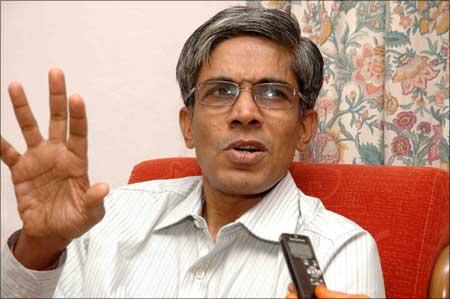
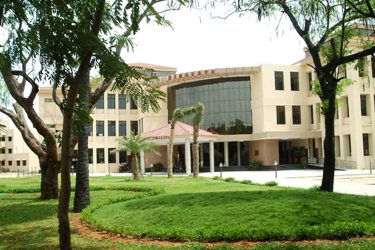
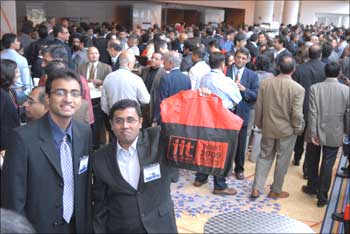

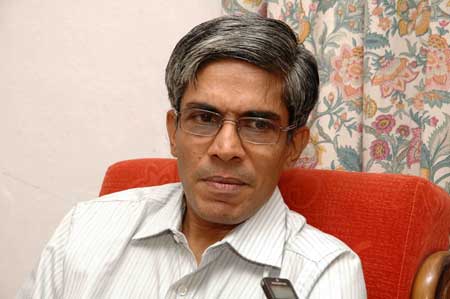
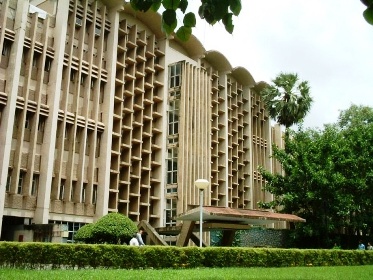

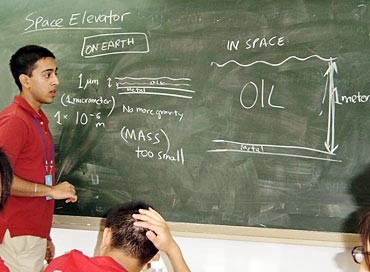
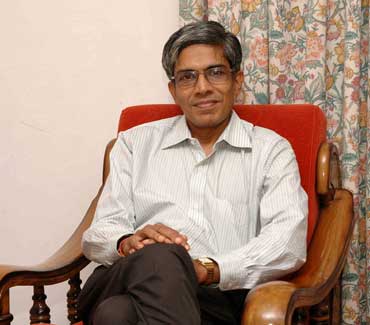
article